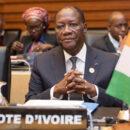Sudanese Polling Day and A Complex Election
With less the 48 hours remaining for the polling day in the first democratic election in Sudan I want to go through some practical issues regarding the readiness of the National Election Commission to ensure smooth running of the election in all regions of Sudan.
I will not discuss the recent dispute between the NEC and the opposition parties which ended with doubts over the impartiality of the NEC, and its ability to carry out a free and fair election. At the same time I will not discuss issues related to Darfur region and whether it is possible for the election to go ahead in some parts of that region or not.
I will examine whether all the logistical arrangements needed are in place regarding Polling stations, and whether their location are within reasonable distance especially in the rural areas. Still there are doubts about whether all the needed ballot papers are in place. The NEC began with 20,000 planned polling stations, but later cut them to 10,230. Its reason are because there are not enough staff and police to run them. That itself raises many doubts, because if they think the election need 20 thousands stations at the beginning, what let them to believe that cut them to half will do the same job and not affect the process negatively? The right of the people to vote comes first, not the number of policemen.
I am going to examine the figures published by the NEC regarding number of polling stations and also numbers of registered voters;
– The numbers of register voters is 16,176,142 people the polling station are 10,230, that means the average voters per centre is 1617. If any voters take one minute to complete the whole process, ( voting 8 time in north and 12 in the south) that means you need around 1617 minutes (27 hours) in the three days of voting.
– The centres open from 7:00 am to 6:00 pm that means 11 hours per day, i.e. 33 hours for the 3 days of voting. That is fine if the process of completing the voting only take one minute per voter.
– From our mock election and voters’ education training for more than 700 trainers of trainers, I can say one minute is not enough for anyone. Even myself I will not be able to complete the ballot in one minute, and I have been studying the rules governing the election and also contributed in writing our training manual and also the production of our training video.
– NEC staff in the polling station are suppose to explain to each voter how to vote and that itself takes more than one minutes, and that is supposed to happen 3 times. The voter passes through 3 staff in the voting station. The first is supposed to give you 2 voting papers, for the election of the president and the state governor, the second 3 voting papers for the National Assembly (the geographical constituency, women’s list and the political parties list — proportion representation), and the third will do the same thing for the state legislative council. Just imagine how long that takes. In southern Sudan there is a fourth, for the Southern Sudan Legislative Assembly.
– In the north you have 8 voting papers with 3 colours and 3 symbols in the National and state Assembly to differentiate between ,the constituency , women list and party list (square, circle and triangle).
– From different mock elections the result shows the following; in Warap state in the south an illiterate women took her 3 hours to fill the 12 voting papers, finalist student in University of Khartoum took him 20 minutes to fill the 8 voting papers.
– The problem is for the illiterate to remember the colours, the different symbols in the ballot, and the symbols of different candidates and political parties.
– I was explaining the process to an illiterate 60 years old lady , it almost took me one hours to explain but at the end she , told it is difficult for her to remember the eight different paper and it is better for her to vote just two times instead of eight.
– In Kordofan and Darfur regions, there is a serious logistical problems regarding the location of the polling station. In one village the nearest polling station takes around 4 hours by hours by lorry to be reached, as there are no proper roads, and if the NEC wants to use mobile polling station as before will raise the doubts about the possibility of rigging.
As a result, I think even if there are not political problems regarding the election, most probably the result will be decided by the void ballot papers more than the correct ones.






Well the landslide vote for independence has been acknowledged now by Vice-President Ali Osman Taha. “”We announce that we accept the outcome of the referendum and we agree on the results,” Taha told a news conference in the Sudanese capital, emphasizing the intention of government “to pursue a policy of good neighborly relations with the south”.” Source: http://bit.ly/i8T3dI